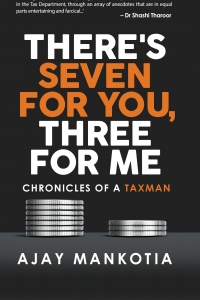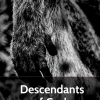
Lal Bahadur Shastri National Academy of Administration
There is Mussoorie and then there is Mussoorie. As the taxi crosses Library Point and moves to the road going to Company Bagh, we leave the diesel-imbued traffic congestion and cement jungle behind to enter the quiet forested ridges and genteel estates of yore. Vehicular traffic is negligible, footfalls even less. This is what the hill stations ought to be! But though I drink in the wondrous sights, my nervousness does not fade away. It has been my abiding companion since I boarded the Mussoorie
Express the previous night from Delhi.
After about two kilometres, the taxi reaches a gate on the right side of the road, from where a road winds its way up a gentle slope till we arrive at a quadrangle. We have arrived at the Lal Bahadur Shastri National Academy of Administration.
This is 1st September 1982.
All the successful candidates who have cleared the UPSC Civil Services Examination, belonging to the Indian Administrative Service, Indian Foreign Service, Indian Police Service, Income-Tax Service, Customs & Central Excise Service, Indian Audit & Accounts Service, and all other Civil Services, will be attending the Foundation Course for three months. This is the only course for all the Services combined where the trainees interact with and befriend each other. After that, it will be specialised training for the different Services at various academies across the country. Not all the candidates attend, though. If someone hasn’t made it to the Service of their preference, say the IAS, the examination needs to be taken again (during our time, the exam could be taken for a maximum of three times between the ages of 21–26; for SC/ST candidates, there was a relaxation for both the number of attempts and the age limit). Since the dates for the exam and the Course clash, the candidates trying their luck again are forced to give the Course a miss, thus letting go of a very good experience.
The campus in Charleville Estate is spectacular. The Academy has been here since 1959 when it was shifted from Metcalfe House in Delhi. There used to be a hotel on the campus built-in 1854 by General Wilkinson. Folklore has it that the name ‘Charleville’ was not of French origin. The locals called it ‘Charley-Biley’. One Mr. Hobson, a retired manager of the Mussoorie Bank, purchased it in 1861 and named it after his two sons: Charlie and Billy.
Other than the main campus, the Academy has other complexes too, for training and residential purposes. The Officers’ Mess, the Library, the VIP Guesthouse, Director’s Residence, and other buildings hark back to the British era. Unfortunately, some of these were destroyed in a fire in May 1984, a year and a half after we had left. The trainees who came after that have been deprived of a stunning architectural marvel.
Registration takes a while to complete. By now, the registration room is filling up. Trainees introduce each other tentatively. Expectedly, most of us feel unsure and under-confident. Did I deserve to get selected? Was my success a fluke? Am I worthy enough? Will I survive the training? Will I be found wanting? These questions, I am sure, swirl around in the minds of many. My thought is interrupted by a loud ‘Hello, Ajay Bhaiyya. How are you?’ The younger sister of my college batch-mate, an IFS trainee, walks in and hugs me. Amidst the self-doubt, I still manage to gently admonish her, ‘Please, don’t address me as Bhaiyya in public. The word tends to get contagious amongst the ladies.’ She lets out a loud roar of laughter and assures me that she will think about it.
I am allotted a hostel a few hundred feet below the quadrangle. I share my room with another trainee but he is not there as I set up my things. From the window of my room, I get a fantastic view of the Happy Valley grounds where the Sports Complex is situated. These grounds were acquired in 1904 by the brewer VA Mackinnon who started the Happy Valley Club with tennis courts, while the gymkhanas were held on the polo field. The grounds now belong to the Academy.
Happy Valley is also home to the Tibetans who have established a gompa and a chorten on the Dalai Hill. After the Chinese occupation of Tibet, the Dalai Lama followed by Tibetan people made Happy Valley their home. Later, the Dalai Lama shifted his seat and office to McLeodganj in Himachal Pradesh. There is also a well-known school for Tibetan children in Happy Valley.
The first day's dinner sees a full turnout of the trainees. In the dining room, we help ourselves to the fare from serving dishes placed on the tables while the waiters scurry about serving chapattis and replenishing the bowls. Before dinner, we had assembled in the Common Room where we interacted with each other. I met some trainees from my former college and some others who were old acquaintances. The congregation appears to be interesting. There is laughter, loud talk, and cheer all around. The music system is playing Queen, a band I am glad to hear and for the first time in the day, I relax. This is going to be fun!
After dinner, electricity starts playing truant and the campus is enveloped in darkness as I descend the steep stairs towards my hostel, and then climb up three floors to my room. The door to my room is open, and I can see a candle burning. I finally meet my roommate. He is a Sikh. Extending his hand forward, he states his name and then stumps me by mentioning his service as ‘IAS-Proper’. I am thrown off balance by the service nomenclature but manage to introduce myself and my service as ‘IAS–Improper’. I feel he might get offended by my cheekiness, but instead, he says, ‘Never mind.’
For the uninitiated, many officers use the suffix ‘Proper’ after ‘IAS’ to make sure that there is no doubt whatsoever of them belonging to the IAS, and not the Central Services, such as the Income Tax Service which had been allotted to me. My roommate was just following the convention. No-fault of his.
Later, during the elections (which were held for various posts), he declared in a public speech that he would win by hook or by ‘crook’. Again, no fault of his. English was not his first language.
Over the next three months, I would assist him in holding the turban cloth at one end. The door handle was too low for it to be tied, so I voluntarily pitched in, much to his appreciation. In return, I learnt how to make and tie a turban. But despite my daily help, he did not allow me to smoke or drink in the room.
This was fine by me because soon some like-minded trainees had zeroed in on a dhaba close to the hostel which served drinks—on the first floor—away from prying eyes. Of course, there was no question of any liquor license—all was hush-hush and informal. But the presence of two IPS trainees helped. In fact, because of the rather indifferent food served in the Academy Mess, some trainees ate in the dhaba itself, and only on formal dinners did they reluctantly trek up to the Mess.
We were young and enthusiastic, and lack of sleep did not interfere with our curriculum, which began with yoga or PT early in the morning at six. Attendance was compulsory. Then back to the hostel to change, breakfast in the Mess followed by classes. The subjects ranged from History, Political Science, Economics, Law, Public Administration and Management, and Behavioural Science. Computers were still some years away, so the teaching aids were rudimentary. The presence of serving Civil Services officers as faculty in some classes ensured that there was no slackening of attention; dozing off in such classes was not an option. But in other classes, it could be done subtly and many of us caught up on our sleep. Classes continued after lunch too. These required summoning of the highest amount of willpower and self-discipline to stay alert.
Evenings were normally spent in the Happy Valley Sports Complex for the sports-inclined trainees—tennis, squash, badminton, table-tennis, field games. A softer option by way of billiards was also available within the main campus. Others went out for walks, or just indulged in idle chatter. Come night, many indulged in drinking either in the hostel rooms or the dhaba.
The Academy laid a lot of emphasis on being properly turned out. One had to be properly attired all the time; an unkempt appearance was not allowed. Hair had to be trimmed short and properly groomed. A daily shave was a must. Moustaches and beards had to be kept trimmed too. For ceremonial occasions, like Course Inauguration or Valediction Ceremony, the dress code was a Jodhpur suit or sherwani for men and sari in sober colours for ladies. For formal occasions, it was a Jodhpur suit/lounge suit for men; sari, salwar kameez, Western business suit for ladies. The clothes for classes were a jacket, business suit, and on certain days, even pullover/cardigan.
Invariably, various groups of like-minded people were formed. Our group consisted of eight trainees from services comprising the IFS, IPS, Income Tax, Indian Economic Service, and Indian Information Service. Every Saturday evening, we would walk the distance from the Academy to a discotheque at the beginning of Kulri Bazaar, about five kilometres away, to a night of amazing drinks (mixed surreptitiously in a soft drink though I’m sure the management turned a blind eye), food and music. Walking back was great fun. With all inhibitions gone, thanks to the alcohol, and a convivial group of friends, the party used to continue on the road with singing and dancing. My scrapped knees and tears on the trousers are a testament to Shammi Kapoor’s ‘Taareef karoon kya uski’ being enacted with full gusto (falling and all) on the Mall Road whilst the world slept.
As part of the training curriculum, we were once sent on a trek to the Greater Himalayas. Our group went to Niti Pass. While we took a bus to a point beyond Joshimath (with overnight halts at Karnaprayag and Joshimath), we had to walk about six kilometres to Niti village—the last human habitation before the Chinese border. Niti Pass was a few kilometres further, but civilians were not allowed at the Pass. Coping with conditions of adversity, bad weather, cramped accommodation, and limited access to food, forged deep bonds within the group. The hardships borne by the common man at these places and the yeoman service carried out by the Indo-Tibetan Border Police and the Army was an eye-opener. We stayed for one night at the holy town of Badrinath and paid obeisance at the temple. The two Sikhs in our group had the additional experience of going off on a pilgrimage to the Hemkund Sahib gurdwara. How they found the time and energy is a mystery, but trainees are an enterprising lot. I recall that when we filled in the TA/DA bill after our return, we were given an allowance of a few paisas for every kilometre walked (it is Rs 12 now). Not that the amount mattered but the time and effort expended by the government to calculate allowances in paisas didn’t seem like an optimal use of resources.
The Academy also organised visits and stays in backward villages to help the trainees understand and appreciate the realities of rural life. Our group went to such a village in the Bahraich district of Uttar Pradesh. The cook allotted to us in the village had a Master’s degree and we felt terrible about it. Another shock awaited us when we sought to meet an elderly lady in the village as part of a survey. Some district officials had also accompanied us. The lady asked if any of us was a Muslim. On being told that there were none, she allowed us entry. I asked the officials what would happen if the District Magistrate was a Muslim and wanted to enter her house or houses of similarly inclined people. They had no answer. During that visit, we also managed a day trip to Nepalgunj in Nepal, not very far from the village. The official car couldn’t cross over, so we took rickshaws to cross the border.
*****
Cultural life was very active in the Academy. We had very good singers and actors amongst us and cultural functions were held regularly.
One incident has been etched permanently in my mind. There was a film to be exhibited in the auditorium after dinner. Except that the projector acted up and matters got delayed. With five hundred trainees in the auditorium and liquor swirling inside many, the matter was getting out of hand. People were getting restive. There was a threat of violence in the air. The audience was getting fidgety and it didn’t bode well for peace and tranquility.
As we were heading towards the denouement, an IAS trainee took the stage. He was given to court jesting and was popular. There was a roar of approval. The stage had no mike, no sound system, no props, no script, nothing. What would he do? The crowd’s roar was getting louder and louder by the minute. He was a fast thinker. He knew that turning back was not an option. He would get lynched after raising the expectations of the ecstatic trainees. The ladies had also joined in and were egging him on. To do what, no one knew including our hero on stage.
He went to the rear left-hand corner of the stage. He extended his right arm and started walking with a swagger diagonally towards the front right-hand corner of the stage. The crowd went wild. That further fuelled his ardour. He then went back the same route, this time with a more pronounced swagger. And then back again. The strut more pronounced, more explicit. Then back, his body getting suppler and more elastic. With every diagonal journey of his, he would do something new with the hand—salute with it, keep it on his head, make circles with it, every permutation and combination possible.
After he couldn’t manipulate his body beyond a point, he decided to shift his attention to his left arm. It was surreal. He kept the crowd enthralled—the future civil servants, diplomats, taxmen, police officers—until the projector came back to life and reluctantly the trainees began watching the movie.
*****
Cross-country runs were another fixture where men and women ran together, and many women bested most men. Also, with a communal life in such an enabling surrounding, romances were bound to happen, and many batch-mates eventually tied the knot with each other.
The Diwali festive season fell right in the middle of our training. When Diwali comes, teen patti can’t be far away and many rooms saw spirited sessions lasting the whole night. Of course, the stipend we got was modest, and savings after the Mess bill (even if one didn’t eat there) and other charges, were minimal, so the gambling ‘kitty’ was well within reasonable levels. But not everyone was strapped for cash. The Asian Games took place from November to December in Delhi that year which led to the advent of colour TVs in India. A trainee installed one such TV set in his room. That was our first exposure to the world of colour on the screen.
Eventually, the course got over on 30th November 1982. The associations made, the friendships forged, the breakdown of regional, social, cultural and religious barriers, a sense of common identity, shared values and the acknowledgement of the over-arching Indianness of the Civil Services were the takeaways of the training.
That the IAS was a superior Service to all other Services was driven home to the trainees of other Services, when we heard of a remark through our IAS friends. A faculty member, on the day after our departure, commented that now that the inferior Services had left, they could focus on the real training.
The trainees belonging to the Income Tax Service then proceeded to Nagpur.
About the Author





Comments